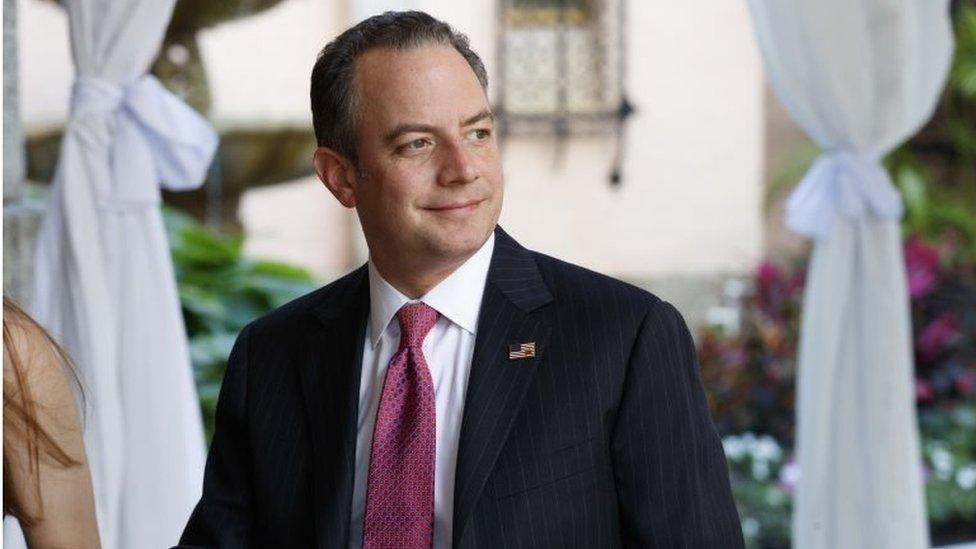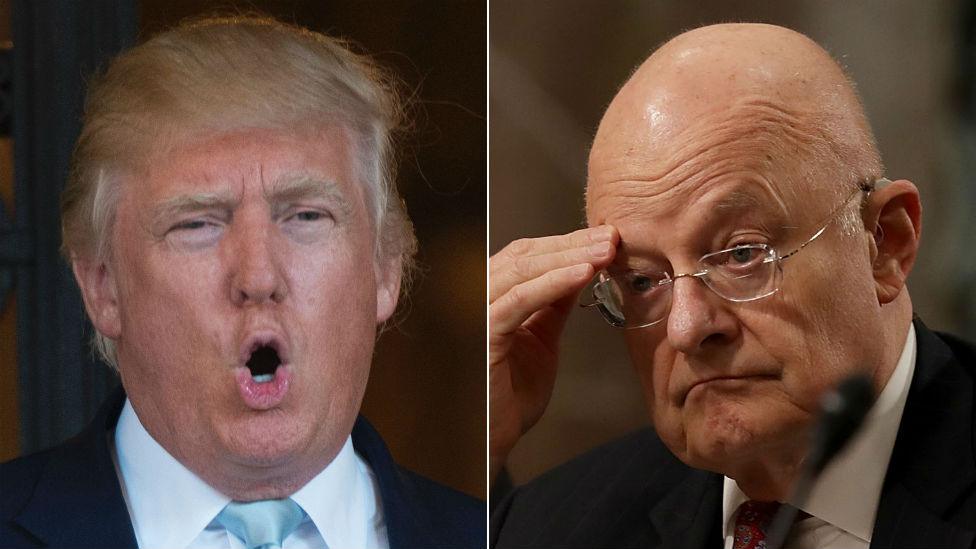Trump accepts Russia hacked election - Reince Priebus
- Published

Reince Priebus is the first senior member of Donald Trump's team to say the president-elect had accepted the intelligence report
US President-elect Donald Trump has acknowledged a report by intelligence agencies that Russia tried to hack the presidential election, a top aide says.
"I think he accepts the findings," incoming chief of staff Reince Priebus told Fox News Sunday.
Mr Trump has until now repeatedly rejected the claims and said it had no effect on the outcome of the poll.
Russia denies allegations it was behind the hacking of Democratic Party emails to damage Hillary Clinton.
Kremlin spokesman Dmitry Peskov said on Monday they were "reminiscent of a witch-hunt" and contained nothing of substance.
President-elect Trump was presented the findings of the report by intelligence chiefs on Friday.
"He's not denying that entities in Russia were behind this particular campaign," Mr Priebus said on Sunday.
But he did not clarify whether Mr Trump believed Russian President Vladimir Putin had directly ordered the hack or not, as found by the report (an unclassified version), external.

Key findings of report (unclassified version):
Kremlin had "clear preference" for Mr Trump to win US election, with goal to "undermine public faith in US democratic process and "denigrate" Hillary Clinton
Russian military intelligence hacked into the email accounts of the Democratic National Committee and top Democrats
They used intermediaries such as WikiLeaks, DCLeaks.com and Guccifer 2.0 persona to release the information acquired from the hackings
They also used state-funded propaganda and paid social media users or "trolls" to make nasty comments
Vote tallies were not affected by Russian interference

After meeting Director of National Intelligence James Clapper, CIA Director John Brennan and FBI Director James Comey, Mr Trump described the briefing as "constructive".
In a statement, he said he would ask, within 90 days of taking office, for a plan on how to stop cyber attacks.

Donald Trump has cast doubt on the findings of the intelligence agencies co-ordinated by Gen James Clapper (right)
But he declined to single out Russia, saying it was one of several countries, outside groups and people who "are consistently trying to break through the cyber infrastructure of our governmental institutions, businesses and organizations including the Democrat(ic) National Committee".
The president-elect had earlier described the hacking claims as a "political witch-hunt", arguing that previous hacks on US institutions had not received the same amount of media attention.
With less than two weeks until his inauguration, Mr Trump is under increasing pressure from both Democrats and Republicans to respond to the allegations.
President Obama has already expelled 35 Russian diplomats from US soil over the hacking. Russia said it would not reciprocate.